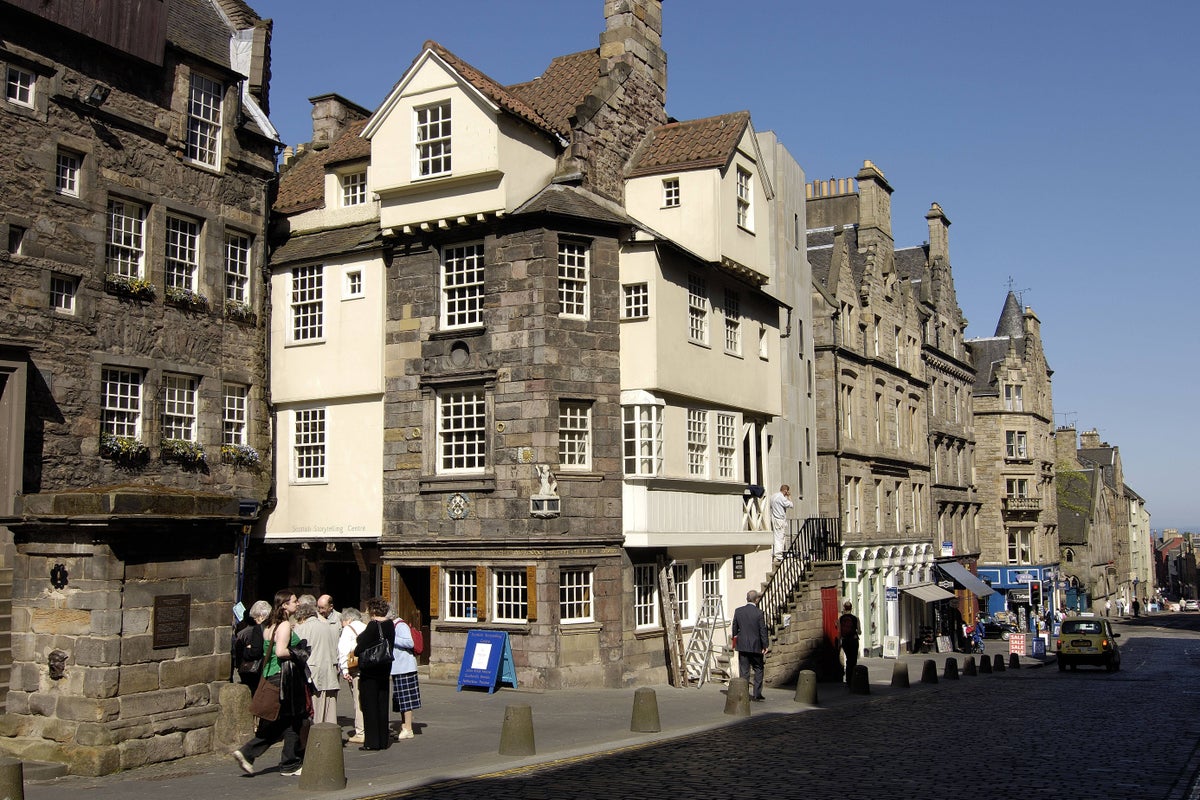
The Church of Scotland has raised concerns that historical buildings could be destroyed by fire if emergency crews follow a new policy under which they will no longer automatically attend alarms.
The General Trustees, the church’s property holding arm, say they are worried the directive could spark confusion among volunteers with responsibility over buildings as to when they should call for assistance as well as increase costs and risk to properties during out-of-office hours.
From the beginning of this weekend, the Scottish Fire and Rescue Service (SFRS) will not be routinely despatched to investigate fire alarms at commercial premises and workplaces in a bid to cut the number of unnecessary callouts the force attends each year.
When an alarm is activated, those with fire safety responsibility for church buildings, known as duty holders, will have to investigate and confirm there is a fire or signs of a fire then call 999 before control room staff send firefighters.
The new policy affects all church buildings, the Church offices, the General Assembly Hall, and the Scottish Storytelling Centre/John Knox House museum, which are all located in Edinburgh.
Earlier this month, it was reported that firefighters were called out to more than 30,000 false alarms across Scotland last year, with assistant chief fire officer David Farries estimating the force could free up 64,000 hours each year for training and preventative work if crews stopped regularly attending false alarms.
Mo D’souli, health, safety, risk and compliance manager for the trustees, said: “We understand the desire to reduce the number of unwanted fire alarm callouts but we have concerns about the impact this new policy could have on church buildings, particularly those of historical and national significance and ones in remote and rural areas.
“Under the plans, a duty holder will have to investigate and confirm a fire or sign of fire before the SFRS control room dispatch crews.
“But there is a lack of clarity around what might be considered equivalent to visual confirmation of fire to enable office bearers to make confident judgments, and we fear it will lead to confusion.
A small break out can quickly lead to a major incident and cause significant damage to property— Mo D’souli, General Trustees
“We understand that the protection of life within occupied buildings is a priority and emergency procedures can be quickly activated by people on site in the event of an outbreak.
“However, we are concerned about the impact on buildings during out-of-hour periods when they are empty.
“All fire alarm activations are time critical whereby a small breakout can quickly lead to a major incident and cause significant damage to property.
“There will no doubt be a high financial cost to the church if we are to increase the level and sophistication of fire alarm systems and detector components in our most significant heritage buildings and provide additional resources and training to duty holders.
“It is also likely that increasing the time of a SFRS response could impact on the average cost of dealing with fires, particularly in large heritage buildings.
“This could reduce risk appetite amongst insurance companies for these properties and drive up costs in the long-term.”
Responding to unwanted fire alarm signals results in tens of thousands of unnecessary blue light journeys in Scotland every year.— Iain Macleod, SFRS
Deputy assistant chief officer Iain Macleod, the head of prevention and protection at the Scottish Fire and Rescue Service, said the service had started communicating “about the need to change our response to automatic fire alarms and what the potential impact could be” in the the summer of 2021.
He stated: “Duty holders must ensure they train staff and put in place suitable procedures to investigate the cause of any alarm actuation to confirm if there is a fire or not.
“Firefighters will always respond to any reports of fire or signs of a fire. Signs of fire may include but are not limited to: visual flame; smell of smoke; smell of burning; or any fire alarm signal – other than a single smoke detector.”
He added: “During unoccupied hours, duty holders should consider the inclusion of appropriate property protection measures within their fire risk assessment.
“Responding to unwanted fire alarm signals results in tens of thousands of unnecessary blue light journeys in Scotland every year.
“We want to free up resources so that firefighters are available to attend real emergencies or undertake training and prevention activities in their local communities.”







